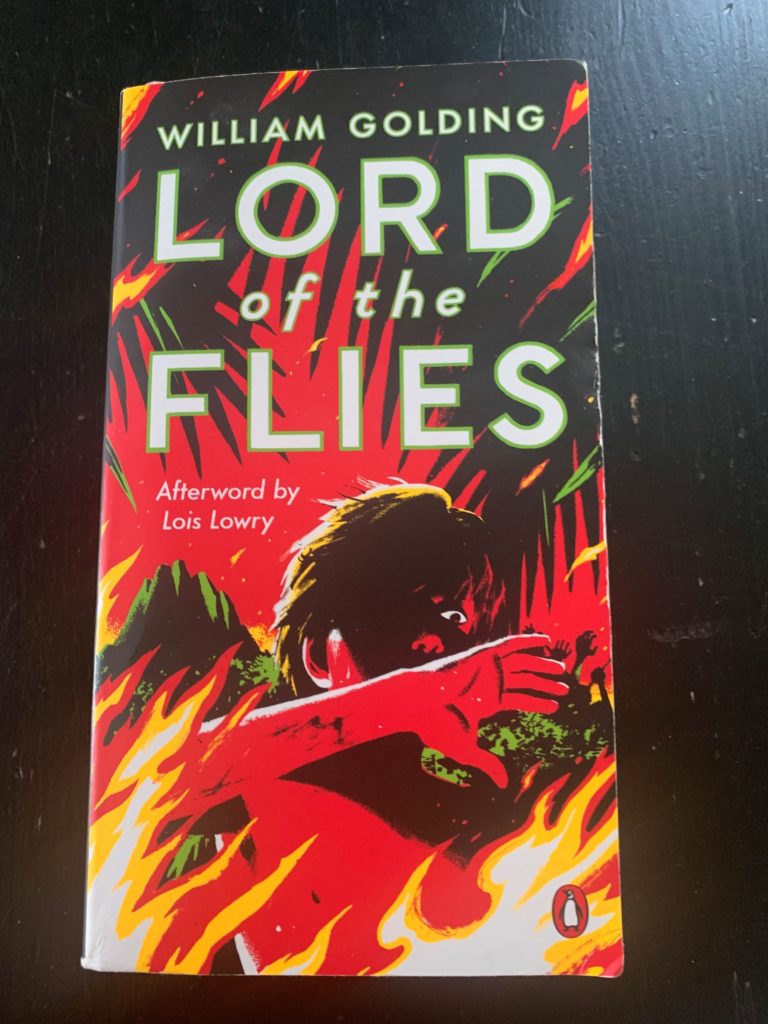Last night, I got home from a long week of travel. While I had my iPad with me all week, I just didn’t have the energy to write. So, this was supposed to be published on Friday but it wasn’t quite finished. I am going to have several more weeks of this, mostly through the summer before life returns back to something more normal.

This is the chapter that things finally turn in the book. The tribe has permanently split into Jack’s group and Ralph’s group. The original tribe still has assets that Jack does not have, primarily Piggy’s glasses and the ability to start fire. This of course leads to conflict or more specifically theft.
The elephant in the room is what happens at the end of the chapter. Simon in some sort of reduced mental capacity is sacrificially killed when he stumbles out of the bushes and into the group of blood thirsty hunters. This is the big moment that all of the pundits have been alluding to throughout the analysis of the book.
I guess where I am at with this is it seems awfully cultish. I get it that this is an exaggeration but it is like the kids can’t help themselves. They seem to be in a trancelike state whereby ‘of course we couldn’t control ourselves’. It is not said explicitly that Ralph and Piggy participated, but the sure did not stop it.
I sometimes wonder what it is like to be entranced in some sort of blind following. The last thing I remember was when I was in college, there was a cult somehow connected to the appearance of the comet called Hale-Bopp. The cult was named Heavean’s Gate. It was discovered that near the end of the comets visibility, most of the cult members killed themselves.
From what I know, the surviving/former members really never talked publicly about how this could happen. Granted, this is the first time I have ever really researched it since knowing of the event. The fact still remains that I wonder what drives a person to move from considered normal to terminal, blind faith.
There is a difference between dying for your faith and dying as a result of it. When you analyze things like Wako, those are events where people died as a result of their beliefs. Many things went really wrong and ultimately they paid the price. I would say that they prepared to die for what they believed, but I don’t think that they thought it was a fact that it was going to happen.
Before I get too off track, what is the reason that people get involved in these endeavors? In my opinion, it is a few factors. One would be a belief that already leans toward the vision of the cult leader. The second would would be that they are lonely or unfulfilled and the social connections validates their beliefs. The third would be a charismatic leader (at least to the followers) that keeps driving the values or beliefs of the group. Huh, it kind of sounds like Jack is a cult leader.
End Your Programming Routine: Before I finish this review series, I think that I am going to end in a different place than most of the literary critics. Is that any surprise? Make the correlation to a group of people looking at the facts (or the book). Clearly each person’s bias is going to overlay on interpretation if it is analyzed in a pure vacuum. Said a different way, how could I look at a story and agree with a group of people that don’t have the same outlook as me? Nothing changes as a result of whether we agree or not, but don’t necessarily accept the status quo without doing your own research.
Recent Comments